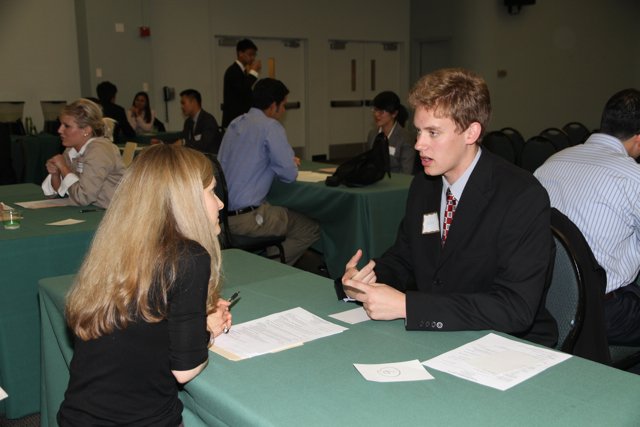
Interview essays are common assignments in high school and college. It involves you asking someone questions about a specific topic (usually chosen by your professor) and then writing down the interview in either question and answer or in a narrative form.
This type of an essay usually involves you interviewing someone you know about something cultural, historical or political. The point of the essay is to enhance your abilities to conduct an interview, ask relevant questions and get information that’s relevant to your topic. It’s perfect for students who plan to pursue journalism.
Here are the steps to writing a perfect interview essay:
Notes
At this point, you’ve already done the interview which means you’ve asked the important questions, taken notes during the talk and recorded the interview so you could refer to it later.
Organizing your notes
If your professor wants you to write a narrative essay, then it will require more preparation and analysis than the simple Q&A list style essay. In this case, you’ll need to organize your notes and pick out some of the more interesting themes that came up during the talk. You’ll look for common threads and links and organize your essay around these ideas. It will help for you to read through all your notes and listen to the recording.
Writing an outline
Even if you’re writing a Q&A style essay, you’ll still need an introduction and conclusion. With the narrative type, you’ll need to write three supporting paragraphs as well. For each style, the outline should look like this:
Q&A Style
- Introduction – tell the reader what this interview is about and who you are talking to.
- Transcribe the questions and answers of the interview you conducted.
- Write a conclusion either summarizing some main points touched upon during the interview or commenting on how the topic is relevant today or how it ties into the topic you’re studying in class.
Narrative Style
- Introduction – let the reader know what this interview is about and who the interviewee is.
- Choose two or three interesting themes or topics that were discussed in the interview.
- Write a conclusion (the instructions for it will be the same as for the Q&A Style essay.
How and when to use quotation marks
With the Q&A format, you’ll be writing down the interview word for word. There’s no need to use quotation marks unless you’re quoting something they said in the introduction or concluding paragraphs. Instead, you’ll follow this format:
Your Name: When did you first hear the phrase “climate change” being used?
Mrs. Smith: I first heard it being used about ten years ago.
In a narrative style essay, however, you can feel free to paraphrase something that was said. For example, you could paraphrase the exchange above like this: Mrs. Smith first heard the phrase “climate change” around ten years ago.
However, if you want to quote her directly, you would have to use quotation marks. For example: When I asked Mrs. Smith when she first heard the phrase “climate change”, she replied, “I first heard it being used about ten years ago.”
Editing
Just as with any other type of essay, the editing process is important. Don’t skip it. After you’re finished writing your essay, set it aside for a while (at least a couple of hours). That way when you’re ready to edit you can look at it with fresh eyes. Reading the essay out loud will help you spot mistakes more easily. It’ll also help you identify awkward phrasing. Have a friend or parent look over the essay one more time before handing it in.
Interview essays are great learning tools that help improve students’ abilities to ask good questions and get the information they’re looking for.
image credit: en.wikipedia.org
